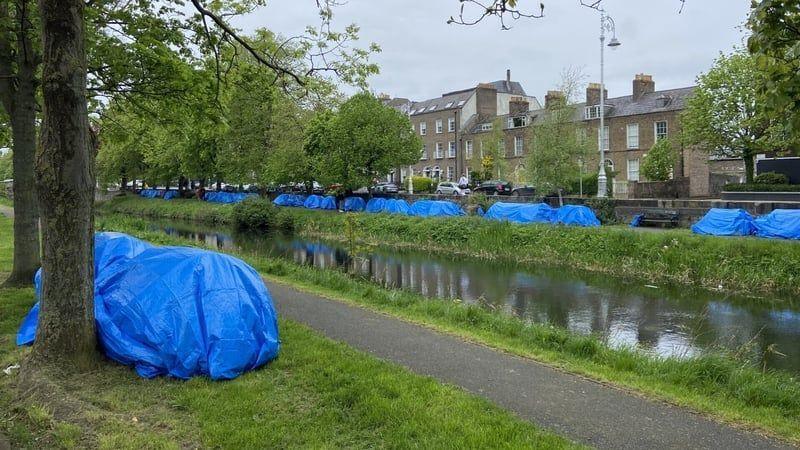'This isn't what Dublin asylum seekers expected'
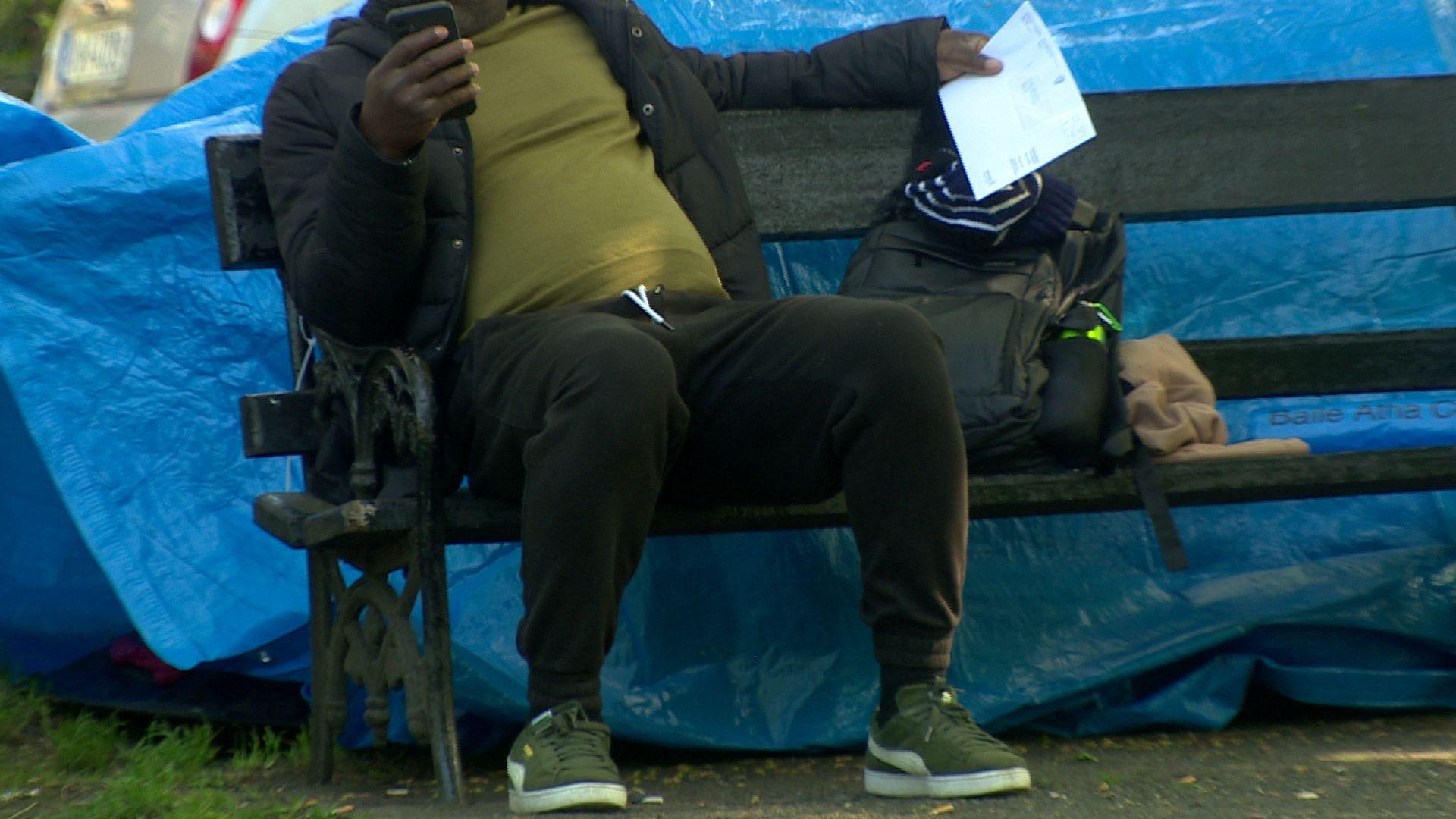
New tents have appeared along Dublin's Grand Canal in recent days
- Published
Some aslyum seekers arriving in Dublin had expected to be received differently, a volunteer has said.
Efforts are under way to find alternative accommodation for dozens of people who have pitched tents along the Grand Canal in Dublin.
"This isn't what people expected," Olivia Headon, who has been helping those seeking international protection, told BBC News NI.
"Anything that they heard about Ireland, from afar, was positive."
She added that those fleeing countries due to conflict or persecution hoped to arrive in a place that was "positive, receptive and a safe haven".
"That's not the reception that they're getting here [in the Republic of Ireland]," she said.
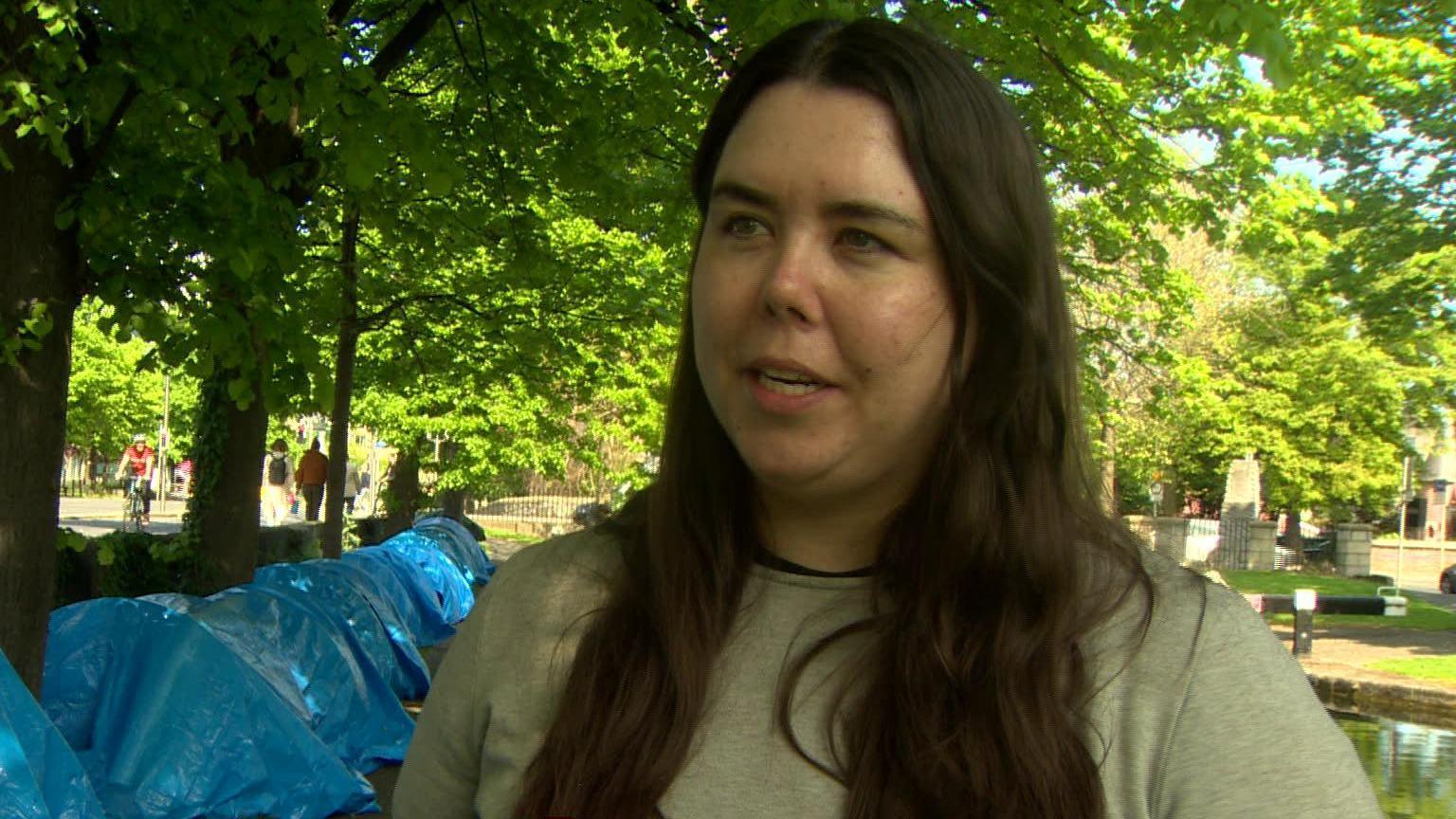
Volunteer Olivia Headon says those seeking asylum had arrived with positive preconceptions of the Republic
Irish authorities removed asylum seekers and tents from a nearby city centre street outside the International Protection Office (IPO) last week.
The IPO is the building where asylum claims are examined and processed.
Last week Taoiseach (Irish Prime Minister) Simon Harris said "makeshift shanty towns" would not be allowed to develop again.
The IPO building is just around the corner from where the tents are currently pitched on both sides of the Grand Canal.
Local charities are on the ground providing meals and information about support services.
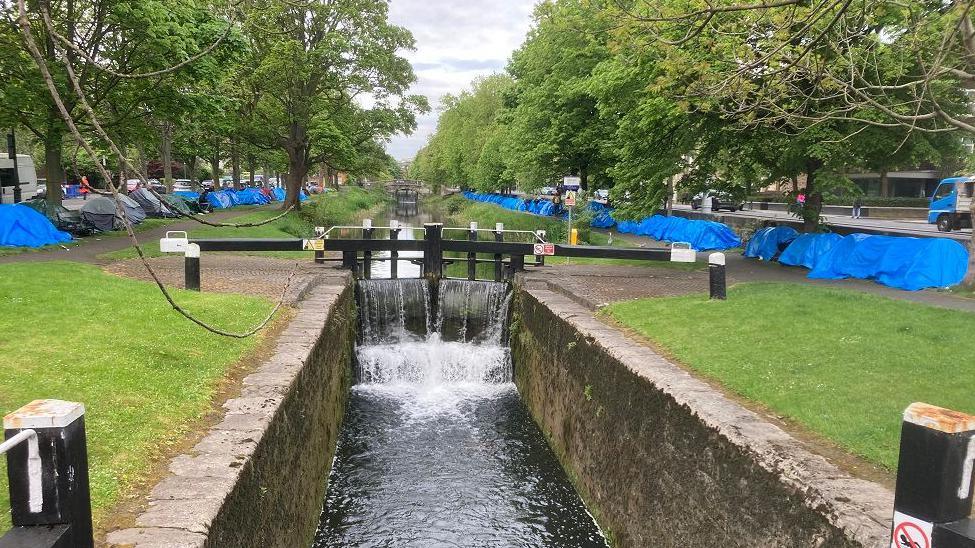
The men are from different parts of the world and many say they have spent months travelling across continents to flee persecution in their homelands.
They are spending a lot of time in small groups supporting each other, while some place mats on the grass to pray.
When their meals are delivered by the charity workers, some of the men sit inside their tents.
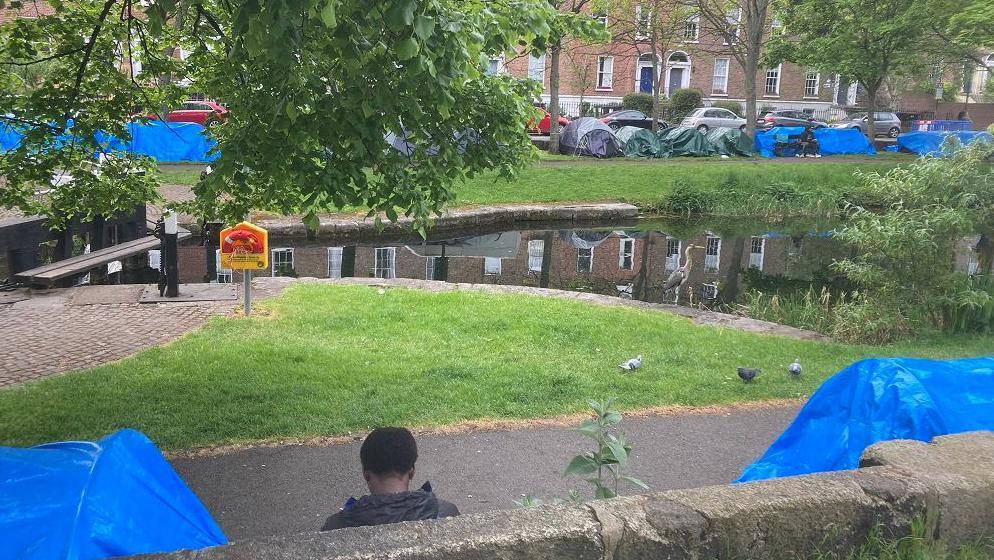
Simon Harris says "makeshift shanty towns" will not be allowed to develop again
Anglo-Irish diplomatic row
In the mean time, local community leaders and business owners are waiting to see if the authorities remove these tents.
Mr Harris made his " shanty towns" comments in the Dáil (lower house of Irish Parliament) last week, before the tents were pitched along the Grand Canal.
Some of the asylum seekers currently in Dublin have travelled within the Common Travel Area between Great Britain and Ireland.
This caused a diplomatic row between the UK and the Republic of Ireland.
Some of the men complete the final leg of their journey through Northern Ireland, travelling across the border into the Republic of Ireland by bus, train, and occasionally as car passengers.
- Published1 May 2024
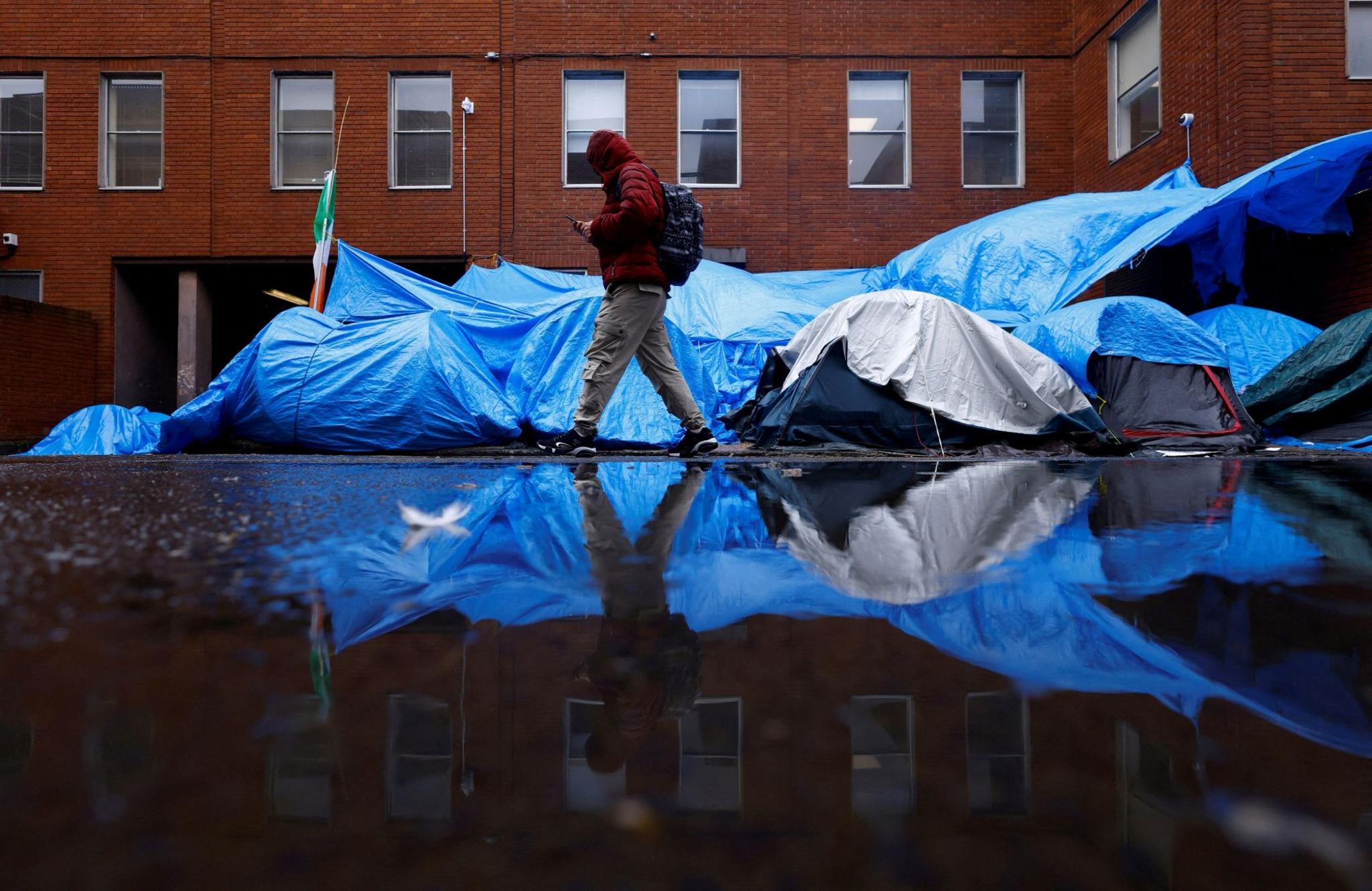
- Published4 May 2024
